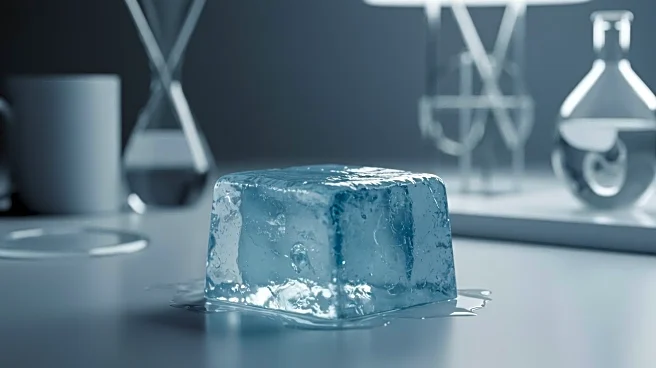What is the story about?
What's Happening?
Researchers at the University of California, Davis have unveiled 'jelly ice,' a gelatin-based hydrogel that remains solid without melting. Presented at the ACS Fall 2025 conference, jelly ice is edible, reusable, and compostable, offering a sustainable alternative to traditional ice. Inspired by frozen tofu, the material was developed to address hygiene concerns in seafood display cases. Jelly ice maintains its structure through freeze-thaw cycles, absorbing heat efficiently. The innovation could have applications in food preservation, shipping, and biotechnology, with potential for exploring other plant proteins for sustainable materials.
Why It's Important?
Jelly ice represents a breakthrough in sustainable cooling technology, offering a reusable and compostable alternative to traditional ice. Its development could significantly impact industries reliant on temperature control, such as food preservation and shipping. By reducing meltwater waste, jelly ice addresses environmental concerns associated with conventional ice use. The material's ability to maintain cooling efficiency across multiple cycles could lead to cost savings and reduced environmental impact. This innovation highlights the potential of biopolymers in creating sustainable solutions, encouraging further exploration of plant-based materials.
What's Next?
Before jelly ice can be commercially available, researchers must conduct market analysis, product design, and large-scale production tests. Successful commercialization could lead to widespread adoption in industries requiring sustainable cooling solutions. The development of jelly ice may inspire further research into biopolymer-based materials, potentially leading to new products that leverage natural resources for environmental benefits. As the technology progresses, it could pave the way for innovative applications in various sectors, promoting sustainability and efficiency.

















